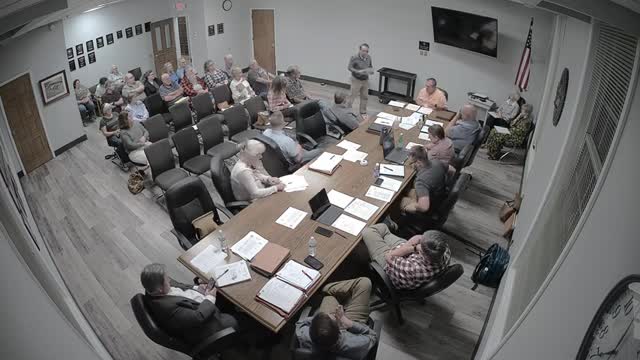Southern County Recovery Court seeks low-cost lease for county space; commissioners discuss terms and precedent
Get AI-powered insights, summaries, and transcripts
Subscribe
Summary
Southern County Recovery Court Inc. requested a favorable lease for space in a vacated county building. Proponents argued the program’s public benefit warrants a $1-per-year lease; some commissioners proposed $500 annual rent to avoid precedent. Staff said a formal lease must be drafted and routed to the legislative committee.
Representatives of Southern County Recovery Court Inc., a nonprofit that supports the county’s certified recovery court program, asked the General Operations Committee for a favorable long-term lease on vacated county space so the nonprofit can consolidate services and support the county recovery court.
Why it matters: the nonprofit provides court-supervised treatment and supportive services to people involved in the criminal justice system, and county officials said housing the nonprofit in county-owned space could reduce the organization’s operating costs and support program participants who receive intensive supervision and services.
Jim Hunter, a retired general sessions judge who said he represents Southern County Recovery Court Inc., described services provided by the nonprofit: “We provide housing. We provide drug testing. We get them jobs. We provide transportation for them. We provide even clothes for them when they come out of jail if that’s what they need. We provide everything they need to be successful.” Hunter introduced Wendy Swaby as the nonprofit’s new president.
County capital-project staff and the committee discussed the financial terms requested. Kenny Myers, reporting for county administration, said he supported a nominal rent for the space: “I would hope that this committee will consider a rent of $1 a year for this space. The economic value of the unit impact of the recovery court far exceeds $6,000,” he said, arguing the social return would exceed small foregone rent. Another commissioner said the opioid abatement committee had discussed the request and proposed a $500 annual rent as an amendment to avoid creating a precedent for other nonprofits seeking free county space.
Committee members debated precedent, administrative process and timing. Some members said $1 a year was appropriate in this particular case because the recovery court program coordinates closely with county criminal-justice operations and produces measurable outcomes, while others worried that granting a nominal rent to one nonprofit could prompt similar requests from other organizations. The $500 amendment was proposed and discussed; debate on the floor wound through whether to treat the rental amount as an annual figure and whether to set a lease term (members discussed a 10-year term). A staff member noted that the final lease would need to be drafted and brought to the legislative committee and full commission for approval.
On next steps, staff said they would draft a lease, coordinate with the nonprofit’s point of contact (identified at the meeting as Wendy Swaby), and route the draft through the legislative committee for consideration. Commissioners asked staff to present a lease consistent with the committee’s direction (annual $1 for 10 years was discussed on the record as one possible motion) and to confirm whether grant timing and construction scheduling would affect the nonprofit’s ability to occupy the space.
Ending: The committee did not complete a final executed lease in the meeting. The matter will proceed through lease drafting and the legislative committee before any binding agreement is signed.
